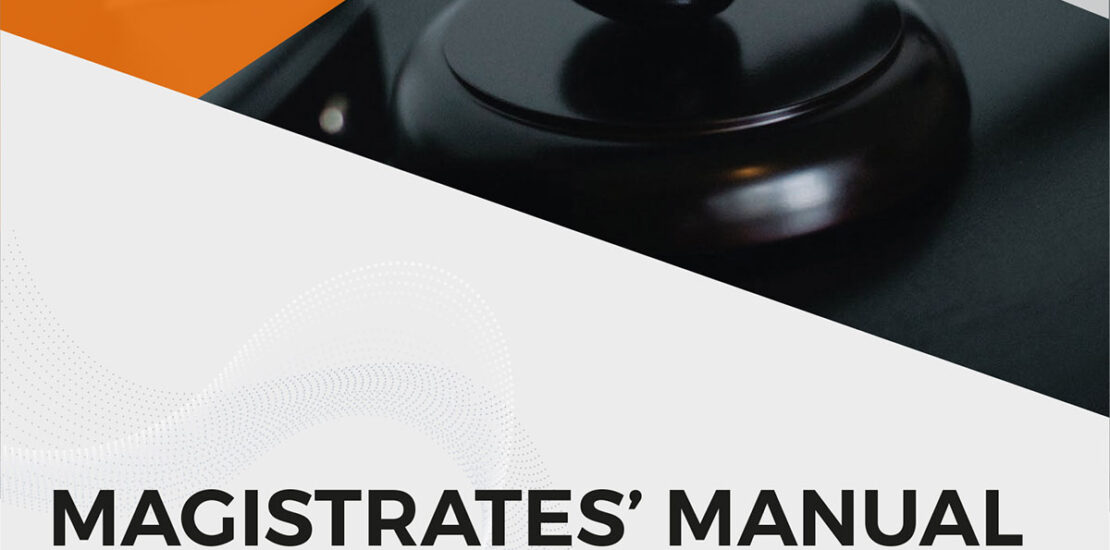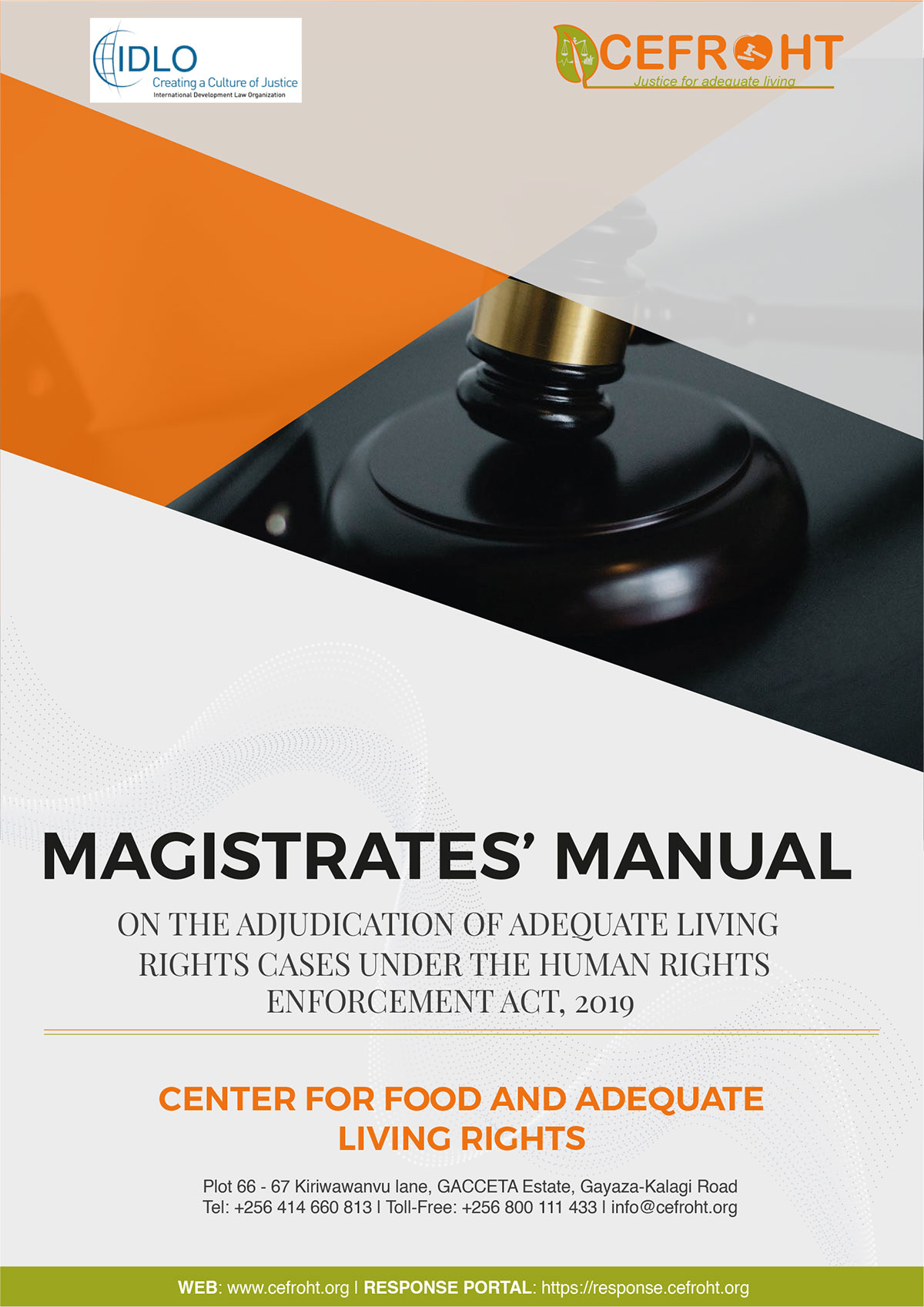Advancing Adequate Living Rights through Judicial Empowerment under Uganda’s Human Rights Enforcement Act, 2019
- September 2, 2019
- Posted by: CEFROHT Reporter
- Category: Publications

Advancing Adequate Living Rights through Judicial Empowerment under Uganda’s Human Rights Enforcement Act, 2019

This Manual outlines the development and purpose of the Magistrates’ Manual on the Adjudication of Adequate Living Rights Cases under the Human Rights Enforcement Act, 2019, produced by the Centre for Food and Adequate Living Rights (CEFROHT) with support from the International Development Law Organization (IDLO). The manual aims to enhance access to justice for rural and vulnerable communities in Uganda by equipping judicial officers, court mediators, and other justice actors with the knowledge and procedural tools necessary to adjudicate claims related to adequate living rights.
It provides a comprehensive overview of the right to an adequate standard of living, detailing its components—such as the rights to food, housing, and land—within international, regional, and national legal frameworks. The manual examines state obligations, including the duties to respect, protect, and fulfil these rights, and discusses the principles of progressive realization and non-discrimination. It also analyzes relevant case law from Ugandan courts and comparative jurisdictions, illustrating how courts have interpreted and enforced adequate living rights in practice.
Furthermore, the manual clarifies the procedural mechanisms under the Human Rights Enforcement Act (HREA), which empowers magistrates’ courts to hear human rights cases, simplifies filing procedures, and expands available remedies. It emphasizes the critical role of judicial officers in adopting a rights-based, activist approach to uphold human rights and promote social justice. By bridging knowledge gaps and strengthening judicial capacity, this manual seeks to foster sustainable access to justice and reinforce the enforcement of adequate living rights across Uganda.
